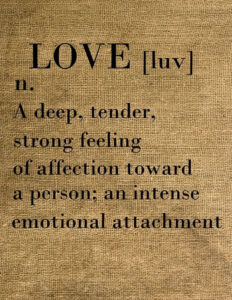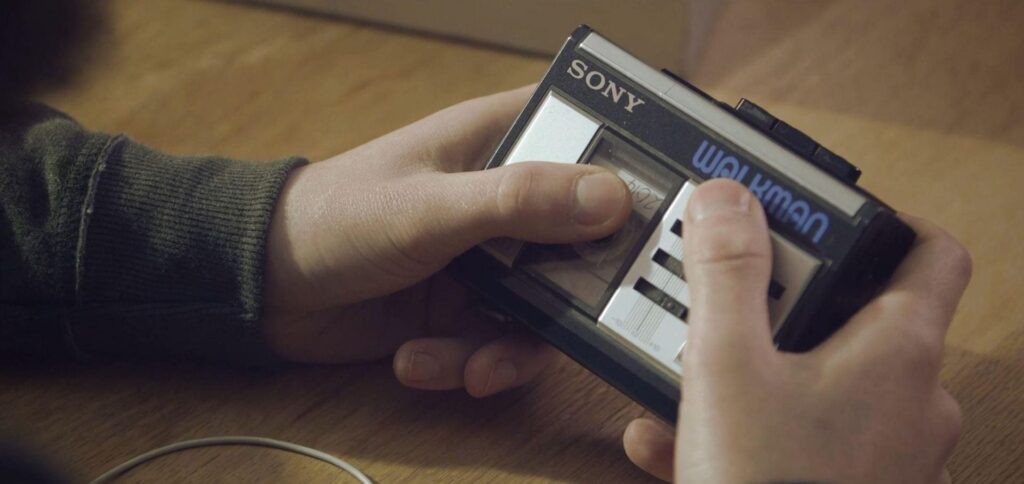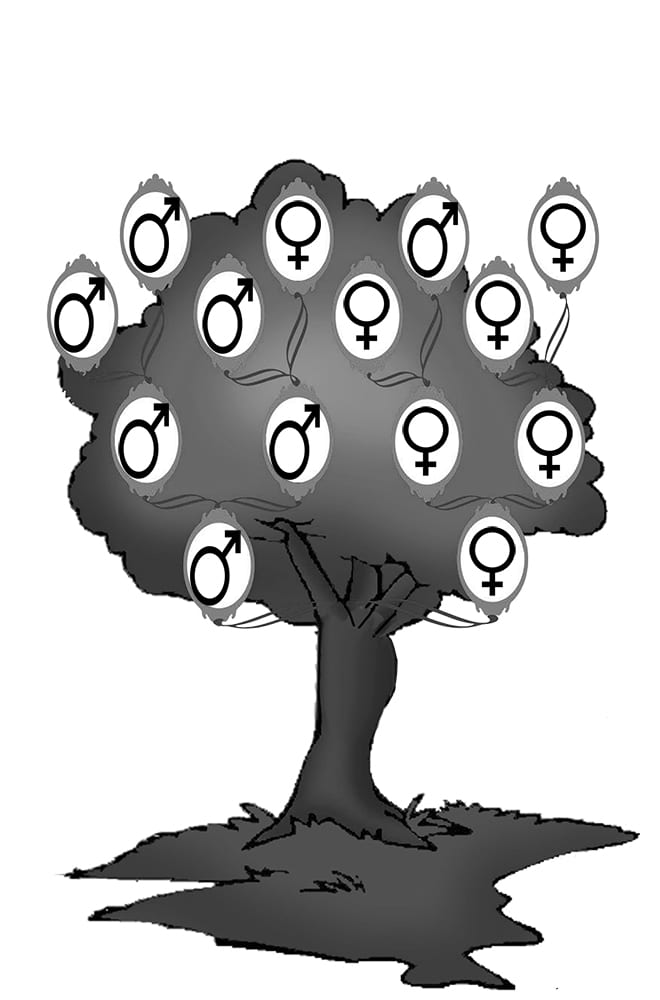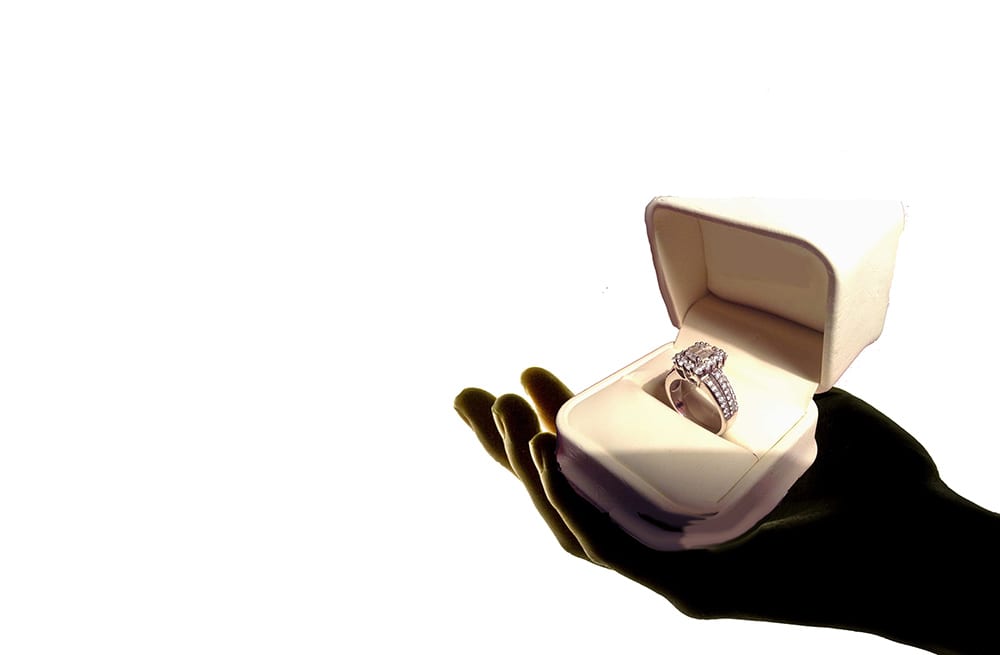Tag: Julia Zygiel ’19
Tincture
by The Cowl Editor on May 2, 2019
Portfolio

by Julia Zygiel ’19
My head is buried in my folded arms as my heart hammers in my chest. My nose presses uncomfortably into the desk, but this is the only tried and true method for hiding the cloud of piss yellow panic that’s trying to suffocate me. I pull the hood of my sweatshirt up, praying simultaneously that it’s able to contain the whole thing and that my professor will drone on past his allotted lecture time per usual so I can get myself under control. But the art of coming down from an attack is sometimes in moving on and forgetting about it, and right now all I can do is think about people wincing at the cloud that now surrounds my head, thinking I’m some freak because not everything I feel is picture perfect. Even worse, I imagine them full of pity and trying to help. Asking what’s wrong.
As the end of the class approaches I can feel the cloud condensed in the small space of my hoodie, pressing uncomfortably against the back of my neck and wrapping around, its misty tendrils wriggling into my ears, making everything sound muted. I raise my head ever so slightly, trying to focus on the professor’s lips and the faraway sound of his voice so that I can tell if he dismisses class. Instead the cloud comes to hang over my eyes, making everything appear jaundiced. It begins to expand into the air in front of my face, leaking out of the small crevice I have created for it, and panic propels my face back down against the desk with lightning speed.
By the time that the cloud must be staining my hoodie, hair, and skin bright yellow, everyone starts packing their bags and leaving the class while I’m stuck hunkered over my desk. I could try to listen to music, but the movement of getting my earphones out of my backpack could draw the attention of the class. Plus, if I move my arms the cloud will escape into the air, which will definitely draw the attention of the class. On top of this, I’m sure that the thought train of my worrying has only made the yellow even more saturated and noticeable. I can feel a hiccup of fear caught in my throat, threatening to choke me, when a cool palm on my shoulder interrupts the storm of my emotion.
“Hey.” Alexandra’s voice matches the sensation of her palm, cool and disembodied. Her voice washes over and blanks me out and wrests me from my emotions, a welcome change after the past half hour of class. The blankness struggles with my panic for a moment, and then I feel the grip on my heart loosen and dissolve. Gently, she pulls me up from my position on the desk.
“How was class?” Her tone is teasing. Neither of us can count the amount of times she’s had to save me from my own embarrassing emotion in public places, and she does not often let me forget it. But the familiar crease in her brow is there. She’s worried about me. This has happened too many times this week.
“It was fine.” I want to bristle at the teasing, but I can’t. Alexandra neutralizes me, she saves me from panic attacks, but she brings me down from euphoria as well. I don’t mind the light pink of joy or the warm red of excitement. It makes me feel like the people I envy on the streets, who live in their color of emotion without shame. Who feel normal and proudly display it. Alexandra, who creates beautiful color no matter her mood, cannot understand my envy.
“I’m sorry,” she sighs, sounding forlorn. Being that I don’t display much emotion when she’s around, she’s become surprisingly adept at reading my mind. Around her head and shoulders, a cloud of midnight blue forms, gaining a few sideways glances.
“It’s okay,” I tell her, and I mean it. Though I know I’ll be upset about it tonight and maybe tomorrow, she eliminates emotion from the equation for the time being. It isn’t logical to be upset; it will only result in stress and heart ache, so I’m not. Slowly we walk to our dorms and slowly the midnight blue grows lighter and lighter and disappears from her headspace. Briefly, I wonder if I could do something to neutralize some of her emotions in turn, but I’m not sure I should wish that upon her.
***
“I want to feel more.”
We are sitting outside of the library, on the marble ledge that looks out onto the gardens. When I say this, Alexandra pulls a face, her brow creasing once more in worry and confusion.
“Feel more?” she laughs. “I thought you felt too much.”
I swing my foot back and forth out of lack of preoccupation, considering my words.
“I don’t like feeling numb, being neutral.”
She scowls for a minute, then her expression clears. “I thought I was helping you.” Her tone is measured, the way it gets when she’s trying to stop a cloud from forming. “I don’t understand what you’re trying to say.”
“Then listen. Please.”
Her lips work to protest, but she produces no sound. She shifts a hand, as if she wants to reach for the reassuring hand on the shoulder but is too afraid. Instead, she begins to sway, touching her shoulder to mine periodically.
“Okay. Tell me.”
For the first time in a long time I feel complete in a color of emotion, with her allowing me to slowly glean the hues of my feeling as she rhythmically sets me to swaying.
“I don’t want you to help me anymore,” I burst out, a bloom of dark purple clouding around me. It stains her shoulder when she bumps against me, but she doesn’t quell it. I don’t feel the blank washing over. She doesn’t say anything, and I can feel from the way she is gripping the marble ledge that this is as far as her active listening skills have stretched in a long time.
“I want to feel everything I feel, and I want to revel in it, and wallow in it, and I don’t want to forget what it feels like to feel good, but I don’t want to forget what it feels like to feel bad either. I want to feel like a human again, with all the highs and lows. I need help, but not a cure-all. You get better by going through, not around.”
“But you asked me to. I thought you wanted this to begin with.” Her grip on the ledge tightens, trying to resist her instincts in this situation, but I can feel the familiar tug of her hand at the backdoor of my mind anyhow.
“I did.” I say it quietly, tears pricking at my eyes. “But I didn’t mean it all the time.” My resistance is enough to banish her presence from my mind. The purple stain of my aura, created by the dirty blue of betrayal and the painful bright red of passionate fury, takes up all corners of my vision.
“I’m sorry,” she says finally, after a silence that feels like an eon. “I didn’t want to make you incomplete. Just better.”
Despite myself, I reach for her hand and squeeze, letting the purple that has run down my arms stain both of our hands like ink spilled over parchment. The crease has anchored itself once more on her forehead, her face registers only confusion. Apprehension lurks just beneath her tongue.
I smile for her. “It’s okay,” I say, knowing it might not be, but knowing that’s what I want. “Thank you for apologizing.”
She holds up our now purple-as-night arms, her lips part in a smile, the apprehension dispersing in the air.
“I love you,” she says to me, “and I want to make it right.”
Deep down in my stomach I believe her, and the deep purple cloud that surrounds us turns bright, then lilac, then is gone, and we are clean again.
Square One
by The Cowl Editor on April 4, 2019
Portfolio

by Julia Zygiel ’19
The shrill cry of the alarm dispelled Tessa’s shade of sleep as her sock-covered feet hit the linoleum floor. She danced awkwardly across the room and swiped her smartphone’s notification bar to the side. She already knew it was 10 in the morning, that it was cloudy with a 60 percent chance of thunderstorms, and that her phone had woken her up four hours too late.
The traffic en route to the station was predictably awful. Construction on I-90 had been dragging on for months, and everyone else had finally caught on to her idea of taking back roads instead. She found herself surrounded by civilians in three-year-old sedans who had either had too much or too little coffee, though, at this point her arrival time didn’t matter.
Tessa grimaced as she choked the steering wheel. She was not looking forward to the smug grin Roberts would be wearing as she explained why she was late. The man was about as endearing as a three-day-old corn chip left on the wet floor of a truck in mid-winter, and almost as soggy.
Roberts didn’t make eye contact as Tessa swiped her badge and entered the prep room; he was too busy throwing together a briefing. She couldn’t help but notice the word “Top Secret” stamped across the top. Before he could slap the folder shut she noticed an alarming number of black bars on the sheets. She had picked the wrong day to mix up her alarms.
“Signals in Cleveland, Topeka, and Chicago,” Roberts grunted, kindly declining to comment on her tardiness.
“Same type of activity as before?” She asked, yanking her locker open with perhaps too much force.
“A bit more intense. Some shared information from Langley gave us the tip, and Secretary Valentine signed off on our part. We’re rolling out as soon as you gear up.”
“What kind of opposition are we anticipating? And is this a force op, something quiet, a raid, what?”
“This is worse. Heavy armor, hollow points. And bring the caduceus.”
Swearing under her breath, Tessa holstered her piece and threw on her liquid nanite jacket. The five-pointed star on the breast pocket glowed for an instant and then faded as she reached for the long, thin staff resting against the wall of the locker. A wave of goosebumps traversed her body as she strapped it to her back. As much as she hated to wonder what warranted its use, she couldn’t wait to see it in action.
“Do we have confirmation that this is a Broken Arrow incident?” she asked flatly.
Roberts sighed, and his shoulders slouched for a moment, his Sumerian ornamented rifle dipping closer to the floor.
“Yeah. Intercepted in transit somewhere in the midwest. Probably Kansas. We don’t really know where or how.”
“Jesus. First Atomwaffen, now these guys. Who guards these things, the Chicago Cubs?”
Roberts shrugged and got the door for her as they made for the garage. Their eyes met, and she felt her stomach turn. She didn’t want to think about if they would both survive to walk through these doors again.
By the time their team arrived, the suspects had been trapped in a decrepit warehouse by an FBI SWAT team for three hours already. They had been ordered to stand down while awaiting the team’s arrival, and as their SUV pulled up and the four of them hopped out of the back, the SWAT commander greeted them dryly.
“Pack it in boys, Dumbledore’s Army is here to save the day.”
“Can it. What’s the situation?” Tessa barked at the diminutive agent.
“Four confirmed hostiles. Two possibly armed, two holding the device. At least one of them is,” he paused and his upper lip wrinkled in disgust, “of your kind.”
“What’s the catch?” Roberts asked, barreling past the commander’s expression. Best not to let politics get in the way of national security.
“Local PD noticed the unusual activity, and two boys got capped. Once they realized there’d be more coming, they rigged the place up. It’s a death trap for anyone who doesn’t have your capabilities,” the commander stated darkly.
Tessa studied the facade of the warehouse. Covered in rust and without a single unbroken window, it seemed lacking as a battleground for the fate of the nation. She caught Roberts’ eye and, not wanting to acknowledge the despair in his eyes, unclipped the caduceus from her back. Now was a time for action, not feelings.
The front door and the lobby proved unremarkable, and even as they ventured further into the heart of the warehouse they encountered only a few easily disarmed IEDs. Each row of mildew and dust covered boxes they passed without incident only intensified Tessa’s anxiety. No way it could be this easy. The way Roberts had built it up, this was supposed to be their D-Day.
As if the universe had set out to punish her for failing to knock on wood, she heard the unmistakable click of a pistol hammer drawing back about five feet behind her. She saw Roberts’ eyes widen in dismay, but before he could get his mouth to produce more than a sputter, she had whipped around, the staff leading the arc of her motion into a connecting blow with the faceless gunman’s neck.
The sound of a log in a hydraulic press and the ghost of a scream echoed throughout the warehouse. An agent behind her gagged and stuttered, “That sound… were those his bones?” She couldn’t answer for sure; she knew from her training to avert her eyes, and there was nothing left of the man to examine.
She cleared her throat to suppress the tremor in her voice, “That’ll show the bastard.”
Straightening her back and squaring her shoulders, she signaled to Roberts to continue leading forward. No one spoke as they approached the last reported position of the hostiles.
The group’s unease at the lack of encounters was palpable, though none of them wanted to acknowledge the possibility of having gone to the wrong location. The last thing they needed was to consider the implications of bad intel in a possibly nuclear situation.
As they cleared the last row of the warehouse, Tessa turned to Roberts for reassurance that the sinking feeling in her stomach was misplaced. She found no solace in his eyes, which had practically glassed over as he looked at the bodies of the two young officers on the ground, their killers long gone. Roberts removed his helmet without a word, his hands growing unsteady, and suddenly whipped it into a pile of boxes with a tormented scream.
“If it’s not here, then…” one of the agents said, suddenly connecting the dots. Roberts tapped his earpiece, “Overwatch, this is Square One. Circle Opposition Forces unaccounted for, Broken Arrow has not been located. One enemy KIA, two friendlies confirmed KIA as well. Is there a secondary location, do we have anything to go on?”
He waited a moment before trying again, Tessa’s anxiety mounting for what felt like the 50th time that day.
“Overwatch, this is Square One.” After a pause, his voice tinged with desperation, “Do you copy?”
As was protocol, another officer began to hail command as well and pulled out his communications device to ensure it wasn’t malfunctioning. Suddenly his hand was clapped over his mouth, his eyes welling with tears, though they seemed devoid of emotion.
Tessa felt her heart plummet to the floor of her stomach. She’d seen that face before. Then Roberts put his hand to his ear suddenly, and as he listened, his whole body seemed to deflate. The anxiety that had picked up the moment they left station was a calcified lump in Tessa’s chest.
Roberts was quite a long time. “Understood,” he mumbled as he removed the earpiece and let it fall out of his hand.
“We lost this one,” his face screwed up in pain. “We lost a whole lot.”
Strangers
by The Cowl Editor on March 7, 2019
Portfolio
by Julia Zygiel ’19

Five years ago, while he was sitting in some stoner’s basement with music blasting and underage drinking tornadoing its way through a high school party, Erik finally clicked in James’ head. They’d been friends for three years leading up to that, and at that point, James liked to say that Erik had about 20 different people living in his head. With every different situation that James saw him in, he was different. When it was just the two of them he was chill. They played Call of Duty and Halo until their eyes burned from the strain. When they were with those of a more popular crowd Erik was all about drinking and getting high. With girls it didn’t matter what clique or creed they belonged to, it was always smooth city.
At that particular party, James had spotted at least five different Eriks. The stoner that was hosting was a surprisingly popular kid, and the party provided a decent spread of high school specimens. James was high as a kite, vegging out on a couch whose history he didn’t want to think about, and Erik was ever the social butterfly, moving quicker around the room than James’ eyes could track him. That was when it clicked. James always thought he was smarter stoned.
Erik was a performative creature. He existed only as others perceived him. James smirked at himself. His mother would be proud that the SAT prep course she was paying for was increasing his vocabulary. Erik, at this moment, was wide-chested and tall, talking with the football jocks and effortlessly cradling the can of Bud Light in his hand. James was fairly sure that when Erik was completely alone he just stared blankly at the wall until a personality he could feed off of happened upon him. He shuddered at the thought. Creepy.
Five years ago was the last time James saw Erik, his light blonde hair stained blue in the LED lights of the party. After a week of radio silence James had shown up at Erik’s house uninvited, musing with a smile that he’d just shut down without enough people around to sustain him. But no one answered the door, and Erik hadn’t been to school in a week. The whole family, it seemed, had packed up and left without a word given to a neighbor or friend. Only Mrs. Stuart, the woman across the street, knew where they went. They had left her with the family dog, Bentley. “They went away, wanted to live among nature,” she told James, the little Scottish Terrier trembling in her arms, “Guess the hustle and bustle of suburban life just gets to be too much for some folks.”
The Language of Love
by The Cowl Editor on February 14, 2019
Portfolio
by Julia Zygiel ’19
In the soft dew of morning’s twilight, when birds and beetles silently meditate for a fraction of a second, I love you. In the subtle crinkle of your not-yet-crow’s feet winking at me, and the scent of your honeyed lip balm when you knight my nose with a kiss, I love you. With the smile of a joke hidden behind hands, the flash of teeth at a clever line, you pull me deeper in. My hair feathers against your shoulder, your elbow nudges my ribcage as you reposition yourself in the way that you love me. Nightly routines that root our love deeper in the soil.
We’ll say it was winter when we first uttered, “I love you,” but the first time I felt it was months before. The sunlight made your eyes look like glowing, melting gold and they filled my heart with molten affection. Now, it’s fingers entwined, wrists cradled to chests and chins and cheeks cupped in palms. All we are is a series of movements, tenderness given organs and skin and life. Love incarnate.

What Does ___________ Mean?: The Roving Love Dictionary
by The Cowl Editor on February 14, 2019
Features
What Does ___________ Mean?: The Roving Love Dictionary

What does Love mean to you?
Love is seeing past the cracks, the missing acts, and the backbreaking tax of loving someone else. You don’t fall in love, you choose to love.
by Connor Zimmerman ’20
What does Eye Candy mean to you?
Eye candy is what I see when my girlfriend walks into the room with a smile.
by Dawyn Henriquez ’19
What does Amazon Prime and a good time mean to you?
Amazon Prime and a good time means a love as strong as the “Amazon Prime” shipping tape but gone as quickly as their two-day shipping.
by Julia Zygiel ’19
What does Galentine’s Day mean to you?
When all the single ladies assemble their Spiked Seltzers, ask their guy friends for flowers, and cuddle puddle their way to the climax of The Notebook and Letters to Juliet. It’s okay to be alone on Galentine’s Day, as long as they’re alone together.
by Jay Willett ’20
What does a Ray Date mean to you?
To me a Ray Date is one that is not very special. Some days the food can be better than others, but really, who would want to go there on a date? Although Chicken Nugget Thursdays are a hit, any other day of the week it is very up in the air if you will leave Ray actually satisfied. I feel that if a Ray Date, especially the first date, is the place you go, then from the start you should know that it is nothing serious. They’re not even using Friar Bucks for crying out loud!
by Grace O’Connor ’22
The Cycle of Getting Better
by The Cowl Editor on February 8, 2019
Portfolio

by Julia Zygiel ’19
This time it had been a cassette, its original label covered up with a piece of scotch tape that read “Self help” in purple Sharpie. Eloise would rather send her beat up Volkswagen over the guardrail and into the valley below than listen to it. The tape sat next to a Walkman that had been brand new about 30 years ago, but was still holed up in a crushed, dusty box. It had taken more than 300 miles of driving between Iowa and Nebraska to happen upon it. A lot of asking around at unnerving gas stations too, because Google Maps refused to give her reliable information. Eloise was a traveler, a nomad, but never had she felt farther from home, or more alone. Maybe the cassette wouldn’t even work. Maybe all of the years of disuse had scrubbed the filmy tape free of any words, sighs, notes, or noises it could hold. She could only hope.
At midday she finally saw another gas station and took the opportunity to fill up. Things weren’t as plentiful here as they were on the coasts, and running out of gas in the middle of nowhere wasn’t ideal. Her palm ached to release the handle of the fuel nozzle, and she stared blankly into the passenger seat of her car, at the cassette tape and Walkman balanced on top of a precarious pile of bags. She wasn’t sure why she had bought the Walkman, wasn’t sure why she had brought the tape, only that she felt some obligation to do so. The fuel nozzle’s handle clicked and slapped back into its original position when her tank had been filled up, and she drew her hand back, wincing as if she had been hit. It was at least another two days until reaching Yellowstone. Back in the driver’s seat, she eyed the Walkman again.
The cassette tape felt surprisingly heavy, and predictably fragile, in her hand. The Scotch tape was curling at the edges, the shine of the Sharpie had faded, and a delicate half-moon of bite marks decorated its right side. It was surprising that whatever animal had gotten hold of it hadn’t destroyed it, since it was made out of cheap, brittle plastic. Eloise turned the tape over in her hand, discovering a star in the same purple Sharpie on the back. Pinning the tape underneath her thigh she slid on her foam covered headphones and opened the Walkman. The tape clicked into place. She took a deep breath. Another. She pressed play.
At first, only static washed in and out, like a tide come and gone too quickly. Then—
“You must find your most authentic self.”
Panic tore the headphones from her head, catching a few strands of hair in the process. She held pause until her thumb felt numb and when that wasn’t enough to keep the tears at bay, she threw the Walkman into the passenger seat. Hope stopped her from mustering the energy to destroy it. She hadn’t heard that voice in years. Why was she so angry? She hunched over in her seat, the hot plastic of the steering wheel burning her forehead, the smoky quartz that dangled from her neck pressed into her palm. “I must’ve forgotten.”
After 200 miles across Nebraska, Eloise could not shut off her mind. Her racing thoughts refused to exit through mouth, nose, or ear canal. The voice from the cassette wouldn’t leave either. You must find your most authentic self. She felt authentic already, in her car, the shakes and tears of the last gas station still with her. For the past three hours, she had ruminated in just her thoughts and a country radio station without a steady signal. She was her authentic self, baked in the boiling broth of authentic thoughts. If that wasn’t her true form, she wouldn’t know any other way to reach it.
“I’m authentic,” she whispered to herself, squeezing the hard plastic of the steering wheel.
After another 200 miles, it seemed that the voice of the tape had drowned out the not-so-steady country radio. All she could hear was the same seven words repeating. Maybe she had been mistaken, maybe this voice wasn’t actually familiar to her, and she had simply been on edge. Her itching hope told her it wasn’t that.
As the next opportunity presented itself, she pulled her car over to the side of the road and pressed “play” on the Walkman. She hoped that she hadn’t broken it by throwing it, held her breath, and then realized her mistake in doing so when she choked on air at the return of the voice. She had not been mistaken.
“What are those things that hold the essence of your soul? Your hobbies? Your occupation?”
The voice paused for a breath at the same moment that Eloise found hers. Gingerly, she placed the Walkman between her thighs to keep it from sliding from her jeans onto the floor and shifted the car into gear. She needed to make sure she was making good time, and she could pause the tape any moment she liked, easy peasy.
“These, and the other things of importance in your life, will inform you of your truth.”
The voice was lilting, and soft, calm, and metered, just like Eloise was used to. Despite herself, she felt a faint smile lift the corners of her lips.
“Your personal truth is rooted in your personal past, and its discovery will unlock success and unimaginable possibilities. With it, you will find yourself capable of so much more.” After a brief pause, the voice continued, cooler now, “Is that what you want?”
The voice on the cassette tape stopped altogether, waiting for confirmation from its listener. Feeling stupid and ecstatic and scared, she whispered an electric “Yes,”a secret only for her and the Walkman.
“Good,” the tape responded. Briefly Eloise considered that it wasn’t a recording. “Imagine your mother, an object that reminds you of her.”
Eloise thought of the ribbons her mother used to braid into her hair when she was young. She thought of their bright, floral patterns, and the glitter that fell from them and was impossible to wash out.
“Feel it in your hands, squeeze it, remember how pretty it looked against your auburn hair.”
Eloise’s hands trembled on the steering wheel, but she did not pause the cassette. Instead she imagined the texture of the ribbons, and the face of her mother.
“Remember how happy it made you feel when your mother would braid your hair, remember the soft smile she would give you as you tugged on the strands to make sure they were wound tight enough.”
Her headphones felt like they had sewn themselves over her ears. Everything else, the whine of the engine, the rush of the wind whipping around her car, was muffled, faraway.
“You mustn’t forget, Eloise.” Now she could see that face, her face, clear as day. She was so beautiful. “You cannot let them erase me.”
Eloise had been warned about this, she remembered now. When you suppress certain memories, they try to come back. She felt an immense pressure in her skull as all the worst memories of the voice—of her mother—the insecurities, the trauma, came rushing back. She managed to pull over and get her door opened before she puked. They had promised it would be permanent this time. She thought she had done everything right.
Bleary-eyed and sniffling, she chucked the Walkman and its headphones into the road where it was pulverized by the wheel of a Jeep. She took a half hour to calm down and pulled back onto the road, rerouting to the nearest hospital. She just had to try again, until the memories were too mangled to return. That, or she would start the whole thing from scratch and be done with it.
The Marsh
by The Cowl Editor on January 24, 2019
Portfolio

by Julia Zygiel ’19
The townspeople of Emsworth hide their secrets in the marsh. Signs line the singular road which snakes around it, warning against entrance and to beware the almost ever present fog. On sweaty summer nights and cool fall days teenagers will wander around it, carefully tip-toeing across logs to avoid sinking their hiking boots and sneakers into puddles of mud. They search for necklaces with keys for pendants and small wooden boxes that have been glued shut, lacquered flowers on their lids. Anything that will fit the legends their grandparents tell them. Once sunken in the marsh, a secret will stay there, but if somehow discovered, it will betray its former master in a heartbeat. Most of the kids are only looking for dirt on high school rivals. Rumors were adequate in tainting a reputation, but a secret gathered from the marsh had real weight. It had the power to destroy. Something about the act of ritual requiring balance, the grandparents would say. The teenagers assumed their grandparents over-exaggerated as always, like when they told their stories of the war. They merely craved the privilege of a secret, a rarity in a town as small as theirs, and the thrilling satisfaction that accompanied its telling. They never expected to find anything more than a box, or a key. They never expected their neighbors to be capable of secrets more sinister than these. Until Cecil Hester of the 10th grade, shivering despite the summer heat, lost her purchase on a mossy log and felt soft flesh cushioning her fall.
Patriarchy and Matriarchy
by The Cowl Editor on January 18, 2019
Portfolio
by Julia Zygiel ’19
“Yeah,” aunt Amelia interjects, her folded arms bouncing to secure attention. “He used to go to the neighbor’s dressed up as Santa and get absolutely shitfaced. He’d come home singing and swearing,” she laughs, a hand emerges to cover the crinkle of her nose and eyes, as if joy at her father’s embarrassment is something to be coyly hidden from view. Overly impressed by her own story, she laughs to the point of tears. Her two nieces, one college-aged and one already married, both named Rachel out of respect for their great-grandmother, wear faces that are equal parts horror and humor, unsure if they should follow her lead or reassure each other that that’s not typical grandfather behavior.
As Amelia’s laughter dies down to a quiet smile, it occurs to the older Rachel that her aunt doesn’t care about how they see their grandfather. She tells the truth and lets them sift out their feelings for themselves, claiming no responsibility for his reputation or integrity in the eyes of his grandchildren. His own actions determined those things long ago.
The contrast between the maternal and paternal families of her older niece is striking. Rachel knows that there are stories like this on her father’s side, although she doubts she’ll ever hear of them.
The Flynn family is still painfully patriarchal. All but one of the oldest generation is a man, and they are all determined to maintain the image of their parents as an American Wet Dream, the father who was a factory man all his life, steady and noble, and the staunchly Catholic mother who darned all of the clothes and cooked all of the meals. Not a single flaw to be seen in their simple, yet noble existence. That part of the heritage has yet to be reclaimed by women, if it ever will be. Any dissent from the current line has only ever been voiced by Rachel’s mother, an outsider who knew what a dysfunctional family looked like, who told her quietly of Grandma Flynn’s mental illness, and alcoholism.
The Strickland’s are different. There, the women rule. The mothers of two Rachels and their sister: three women for whom the most impactful authority figure in their life has been their mother, for better or for worse. Women who have never been given a reason to trust men. One divorced, one abandoned with a child to care for, and the third stuck with an abusive husband. Despite all the trauma they are still some of the most delightful women ever encountered. Strickland family parties are full of song, laughter, and gossip.
Flynn family parties are colored by storming exits orchestrated by the youngest, the sister, and the tacit agreement between brothers that, despite their disappointment, they must support her. It is a family of ties strung from duty, colored by subtle resentment voiced during car trips to a cousin’s house. Silence prevails, inherited from grandfather and his father. Gripes and pain are pushed down in favor of passive aggression. The song of the Stricklands is lacking, and the laughter bites.

A Christmas to Remember
by The Cowl Editor on December 8, 2018
Christmas
by Julia Zygiel ’19
Black ice stripes the concrete path to our front door. The rest of the snow from the mid-December squall has already melted, but the ice remains, filling my head with visions of broken hips and legs. Our son-in-law has offered time and again to salt the driveway and path, but Lottie always interrupts my “yes please,” insisting that we can do it ourselves, forgetting the fact that neither of us could lift those heavy bags, or push the machine without throwing out our backs. Stubbornly she insists, and stubbornly she has held onto my heart for 51 years.
Ensuring that my steps are rooted, I make it to the door and pat my thighs to remind myself of the small velvet box still burning a hole in my pocket. I enter to a chorus of Merry Christmases. Lottie sits at the head of the table, like she has since our first Christmas in the home we built together. I kneel down next to her seat, and worry briefly that I won’t be able to stand up again. Her knotted fingers caress my cheek, and she smiles coyly, announcing to our descendents that her beautiful boyfriend has finally arrived. I fumble around in my pocket and reveal her engagement ring, swathed in velvet and glowing like the moon. Her hands suppress a gasp and I think I see a flash of recognition in her dark brown eyes. Foolishly, I tell myself she’s remembering my first proposal 46 years ago, the same as this one, only carried out on sturdier limbs.
Before I can ask she whispers yes, beating me to the punch like always. The ring clicks softly as it knocks against her golden wedding band. She doesn’t notice. We kiss, and I am grateful to remain silent. Tears have taken my words hostage. She cries of happiness, and we embrace. The air fills with sighs and sobs of a family that may soon be forgotten.

Force of Nature
by The Cowl Editor on November 30, 2018
Portfolio
by Julia Zygiel ’19
She is an inferno. Not from foam like her father tells her, but from choking smoke and ash. Impossibly alive, and yet immortal by nature. In dreams she is made from the void of a black hole, her armor fashioned from stardust, the moon her chariot. Stars dot the bridge of her nose, freckles that etch Aquarius and Sirius across her belly, chest, and face. But her reality is of earth, and it is the sun which bows to her instead. She lives among humans, finds her solace there. Fruitlessly, they look for answers in her.
She is difficult to love. The stubborn fire that fuels her determination too often scalds a lover. The wrath she turns upon her enemies too often catches her followers in its powerful riptide. Yet a lover so capricious is far more exciting than the patiently benevolent ruler of Abraham. So she is a goddess. She is destruction and growth and she does not care for singular, personal acts of prayer. She listens for the hum of trillions of consciousnesses sending themselves into the atmosphere and judges accordingly. She takes the mean value of a prayer and pockets it for later. She giggles when folks call her uncaring.
She sends fingers of lightning to tickle the goosebump hairs of forests and frowns at the wildfires of California. She drags cold fronts in by their reigns and revels in zero-degree nights of the North. In July, she stokes the heat of the sun with a touch of her palm to the hoods of the cars in the grocery mart parking lots. In the summertime of her smile thunder strikes, miles away, a warning. Her followers have learned from the static shocks of her touch to tread carefully in creating friction.
Still they worship. Her electricity does not only punish, but gives life and charge. They choose to focus on the positive. They long for the excitement of uncertainty, whether their darling will be kind or cruel on any given day. She notes this with amusement and absolves herself of the guilt she feels for the hurt she has bred in the ones who love her most. She calls them her ‘pets.’ They absorb the name, the stars of her countenance blinding their vision. She spins for them, a pretty plaything to be admired. A tornado too powerful to look away from. They are lucky for the chance to fly.
